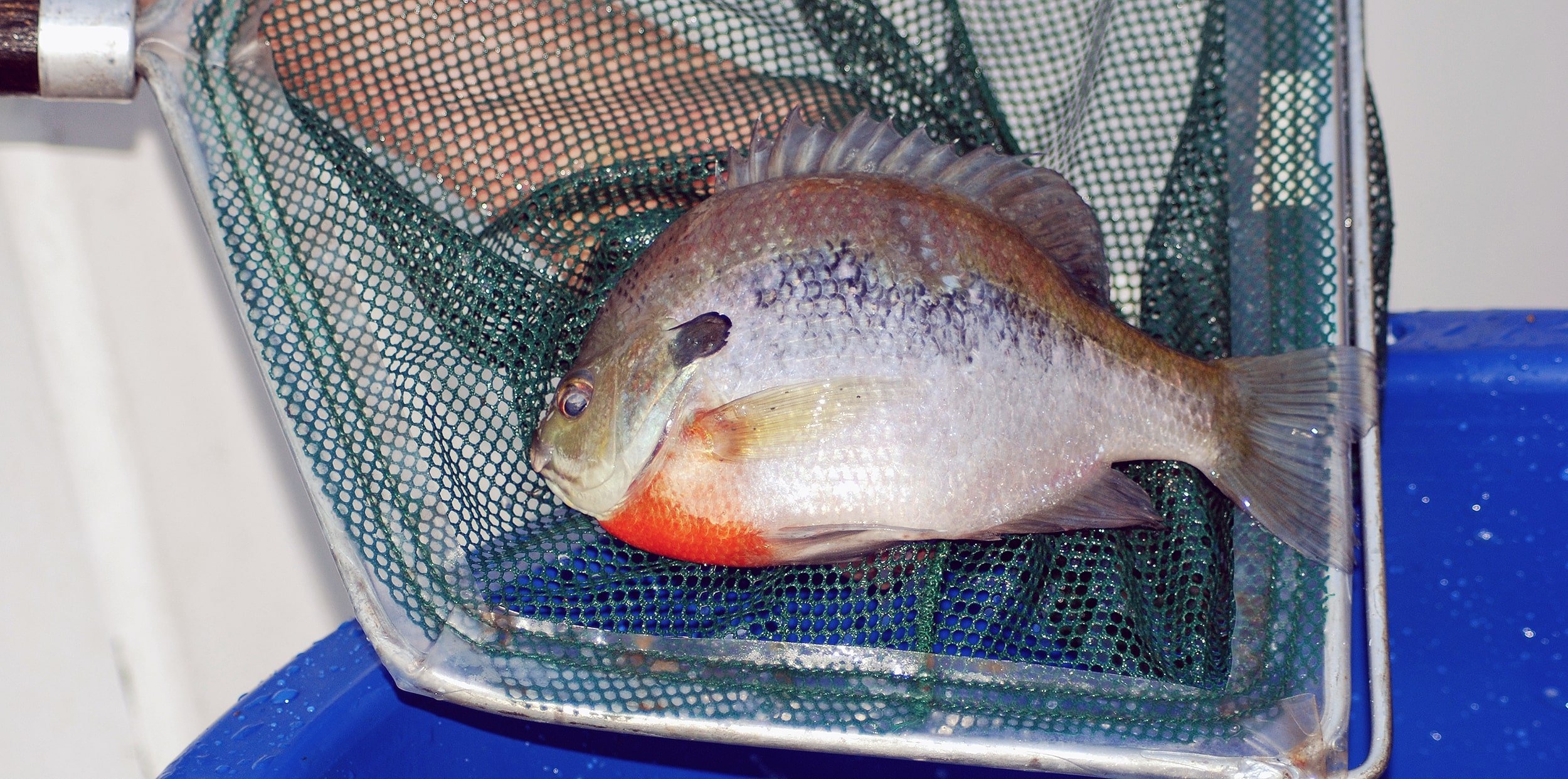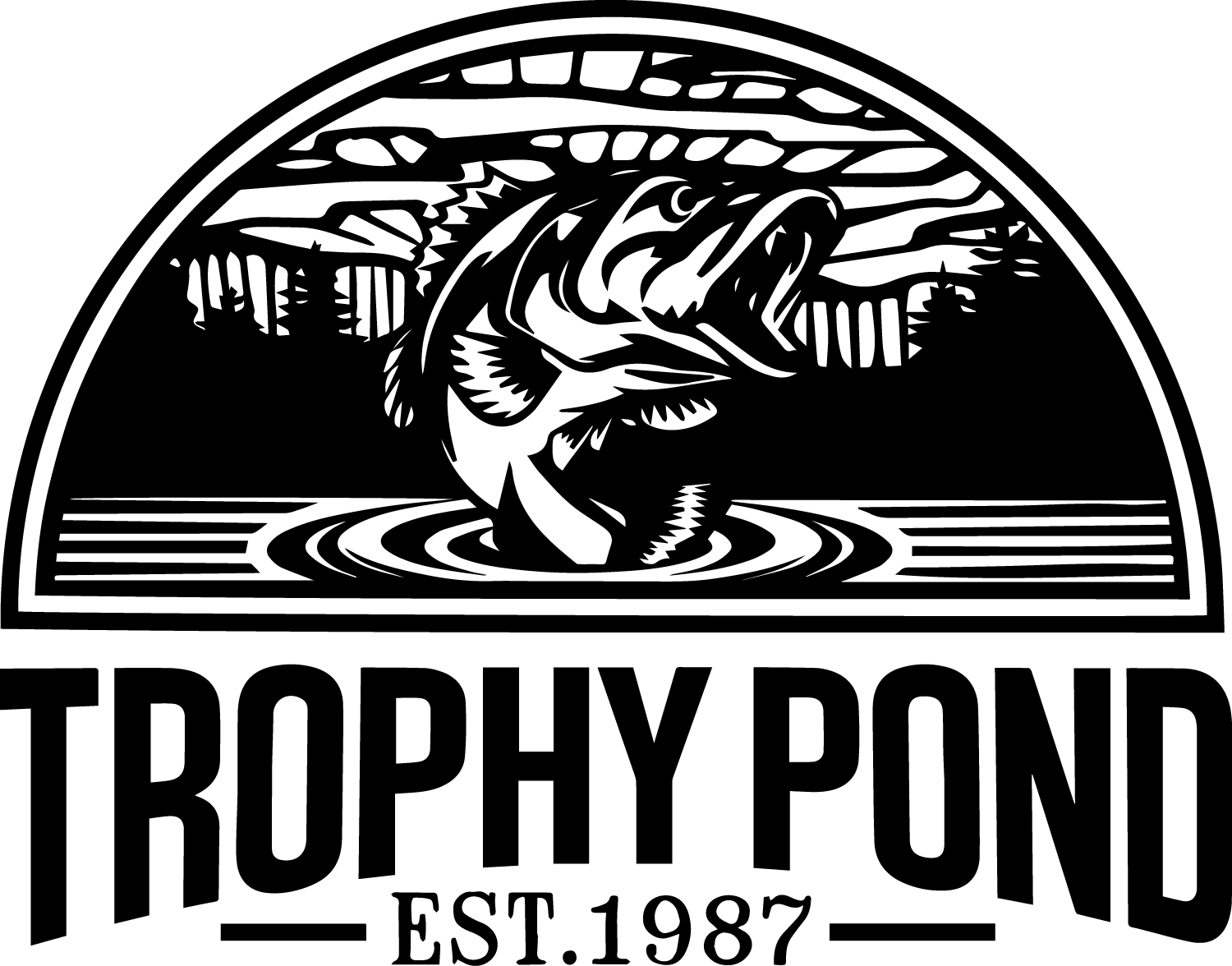
Hand-painted Bluegill.
Hand-painted bluegill are a subspecies of bluegill found in the wild only in the Apalachicola River drainage in the Florida panhandle.
They are known for their vivid coloration. Like the coppernose bluegill, they grow faster and reach larger sizes than northern-strain bluegill. They have better cold tolerance than coppernose and grow at a comparable rate. We have stocked them in Tennessee, Georgia, Kentucky, Alabama, Arkansas, South Carolina, North Carolina, and Missouri, and they’re getting big everywhere we have stocked them.
Bluegill are the forage mainstay in a trophy bass pond, as they spawn prolifically several times each year, stay in the ideal size range for bass to eat longer than species such as gizzard shad or tilapia, and are not subject to winter die-offs as are tilapia and threadfin shad. Their first spawn occurs in the spring when the water temperature reaches 67 degrees; after that, a portion of the population will spawn every full moon throughout the summer and into August or September. One female bluegill can lay up to 50,000 eggs – that’s a lot of bass food!
Bluegill are also a popular sportfish, and the primary target of many anglers for their excellent eating and unrivaled fight pound-for-pound. They readily consume pelleted food, and can reach three pounds or more in ideal conditions.
